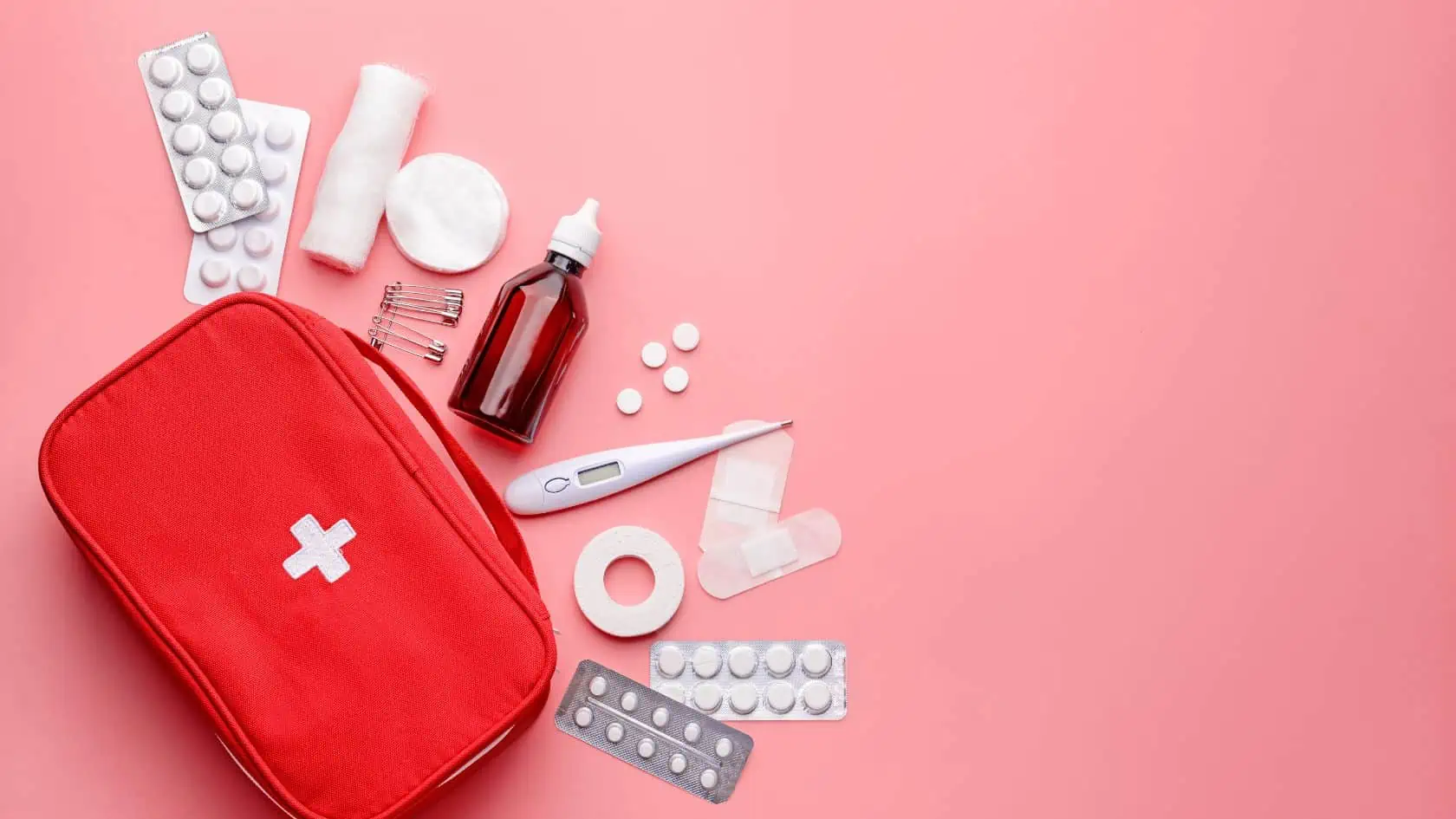20 Tips For Traveling With Medication
Traveling can be both exciting and stressful, especially when managing medications is part of the equation. Preparing and planning are essential to ensure you have everything you need for a safe and enjoyable trip.
This article provides practical tips for managing medications while traveling, from packing and storing to navigating airport security and foreign pharmacies. With some preparation, you can focus on enjoying your journey and staying healthy with minimal effort.
1 – Organize Your Medications
Before you depart on your trip, create a medication list that includes the name, dosage, and purpose of each medication you take. This list will serve as a reference when packing and during your trip. You can store the list on your phone or print a copy for your carry-on luggage.
In addition, consider using pill organizers or daily dosage containers for added convenience when packing your medications. These containers will help ensure you take the correct dosage promptly. Label each container with the medication name and dosage to prevent confusion.
2 – Pack Your Medications Properly
Keep all medications in their original, labeled containers to avoid confusion and to help with security checks. Pack prescription and over-the-counter medicines in a separate, clear plastic bag to make it easy to locate and show at security checkpoints if necessary.
Pack enough medication to last the entire trip, plus some extra in case of travel delays or emergencies. It’s also a good idea to bring a copy of your prescription if you need additional medication while traveling.
3 – Carry Your Medications in Your Carry-On Luggage
Always carry your medications in your carry-on luggage rather than checking them in your suitcase. This ensures easy medication access in case of flight delays or lost luggage.
4 – Research Local Regulations and Requirements
Before traveling, research the regulations and requirements for carrying medication in the countries you plan to visit. Some countries have strict rules regarding certain medicines, including those commonly available over the counter in your home country. Visit the embassy or consulate website of your destination country for up-to-date information.
5 – Be Prepared for Airport Security
At airport security checkpoints, you may be required to present your medication and provide an explanation. To avoid delays, have your medication list, prescription copies, and a letter from your doctor (if necessary) readily available.
Inform the security officer that you are carrying medication before the screening process begins. Liquid medications exceeding the standard 3.4-ounce (100 milliliters) limit should be declared and presented separately from your other liquids.
6 – Adjust Your Medication Schedule for Time Zone Changes
If you are traveling across time zones, adjust your medication schedule accordingly. Consult your healthcare provider before your trip to determine the best approach for your medications and health needs.
7 – Store Your Medications Safely
Keep your medications in a cool, dry place, away from direct sunlight or extreme temperatures. Avoid storing medications in a car or near a window, as heat and sunlight can damage the medication’s effectiveness. And if your medication requires refrigeration, consider investing in a portable cooler or insulated bag.
Notify your hotel or accommodations if you need access to a refrigerator or freezer for your medications.
8 – Plan for Emergencies
In case of an emergency, have a plan in place to access medical care while traveling. Carry a list of local hospitals or medical facilities and the contact information for your healthcare provider and insurance company. Always keep a digital or physical copy of your insurance card with you.
9 – Know How to Find a Pharmacy Abroad
If you need to refill your prescription or purchase over-the-counter medications while traveling, familiarize yourself with the local pharmacy options. Research the names and locations of reputable pharmacies in your destination country, and keep a list of these pharmacies with you.
In some countries, pharmacies may be called “chemist” or “apothecary” shops. Learning local names for common medications is also helpful, as brand names may differ from those in your home country.
10 – Be Cautious With Foreign Medications
If you need to purchase medication abroad, be cautious and buy from a reputable pharmacy. Counterfeit medications are a concern in some countries, and you may not guarantee the quality and safety of these medications. When in doubt, consult a local healthcare professional before purchasing or consuming unfamiliar medications.
11 – Communicate With Your Healthcare Provider
Before your trip, inform your healthcare provider of your travel plans. They can guide managing your medications while traveling and suggest additional precautions based on your health needs. Keep your healthcare provider’s contact information handy if you need to reach them during your trip.
12 – Prepare for Language Barriers
If you’re traveling to a country where you don’t speak the language, consider learning basic phrases related to your medications and health needs. This will help you communicate with pharmacists, healthcare providers, and locals should the need arise. You can also use translation apps on your smartphone or carry a small phrasebook to assist you.
13 – Maintain a Healthy Routine
While traveling, it’s important to maintain a healthy routine to ensure you’re taking your medications as prescribed. Set reminders on your phone or use a pill organizer to keep track of your medication schedule. Also, remember to stay hydrated, eat well, and get enough sleep to maintain your overall well-being.
14 – Consider a Medical Alert Bracelet or Card
Wearing a medical alert bracelet or carrying a medical alert card can be particularly helpful when traveling, especially if you have a severe medical condition or allergy. These items provide essential information about your health and medications to first responders and medical professionals in case of an emergency. Ascertain the information on the bracelet or card is up-to-date and includes your name, medical condition(s), medication list, and emergency contact details.
15 – Research Vaccination Requirements
Certainain vaccinations may be required or recommended depending on your destination before your trip. Consult with your healthcare provider or visit the Centers for Disease Control and Prevention (CDC) website for up-to-date information on vaccination requirements and recommendations. Be aware that some vaccinations must be administered several weeks before your trip, so plan accordingly.
16 – Carry a Small First-Aid Kit
In addition to your regular medications, consider packing a small first-aid kit for minor injuries and common health issues that may arise while traveling. Include adhesive bandages, antiseptic wipes, pain relievers, antidiarrheal medication, motion sickness medication, and any other over-the-counter medications you might need during your trip.
17 – Be Aware of Altitude and Climate Changes
Suppose you’re traveling to a destination with a significantly different altitude or climate than you’re used to. In that case, it’s essential to consider how these changes might affect your medications or medical conditions. For example, some medications may be less effective or have different side effects at higher altitudes or extreme temperatures. Consult your healthcare provider for guidance on managing your medications and health under these conditions.
18 – Manage Medication Refills Before Departure
Before leaving for your trip, ensure you have enough medication refills to last the duration of your journey. Some insurance companies may restrict early refills, so discuss your travel plans with your pharmacist or insurance provider to ensure you have enough medication for your trip.
Check here if you want affordable prescriptions with BuzzRx savings.
19 – Know Your Medication’s Generic Name
In case you need to purchase medication while traveling, it’s helpful to know the generic name of your medication. Brand names often vary between countries, but the generic name (the active ingredient) remains the same. This will help you find the correct medication when speaking with pharmacists or healthcare providers in your destination country.
20 – Carry a Doctor’s Note for Controlled Substances
If you’re traveling with controlled substances, such as certain pain medications or medications for ADHD, it’s essential to carry a doctor’s note or letter explaining your need for these medications. Some countries have strict regulations surrounding controlled substances, and carrying proper documentation can help prevent issues at customs or security checkpoints.
Final Thoughts
Traveling with medication can seem daunting, but with proper planning and organization, you can enjoy a stress–free trip. Following these tips and consulting with your healthcare provider, you’ll be well-prepared to manage your medications while exploring new destinations. Preparing is vital to ensuring a safe, healthy, and enjoyable journey.
Happy travels!







